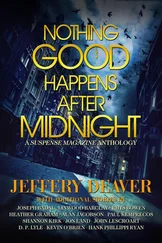But hinges... that’s another matter. When taking out a door, a breaching team will use special rounds, usually fired from a twelve-gauge shotgun. The slugs are made from sintered material — metal powder suspended in wax. This will blow the hinges out, tout de suite. No one has a better sense of humor than cops and within the New York City Emergency Service Unit, they were known as “Avon’s Calling” rounds, a reference to a door-to-door makeup sales business that Sachs had heard about from her mother.
She whispered to the lead breacher, “Go.”
He placed the muzzle against the bottom hinge and pulled the trigger. Sachs had turned away but felt the muzzle blast on the parts of her back that were above and below the bulletproof plate she wore. The sound was astonishingly loud in the closed area of the hallway. A second shot on the top hinge and then the coup de grace was the battering ram in the middle. The door collapsed inward and landed with what was probably a loud crash — who could tell after the stunning report of the scattergun?
Sachs, in the lead, and the other ESU officers streamed inside, dispersing to avoid the bottleneck of the door, known as the “death funnel.” They cried, “Police on a warrant! Police! Show yourself!”
There was no one in the massive open living area of Averell Whittaker’s lofty apartment, other than the body of the security guard, Alicia Roberts, whose death was not unanticipated, since she hadn’t picked up the calls from her boss, Lyle Spencer, to warn her that she might be in danger.
One ESU officer went to the body. “She’s gone.”
Sachs then noted a parlor door kicked open. She and two other officers approached.
“Police! Show yourselves! Come out, hands above your head.”
A voice behind her. “Security guard’s weapon is missing.”
Sachs called, “I want that gun on the floor now. Throw it so I can see it.”
“I’ll kill Averell!” It was Joanna’s voice. “Let us go.”
Sachs said to the S&S officer beside her, “Video in.”
He unhitched the small camera once more and turned it on, then extended the flexible lens cable. He and Sachs approached the doorway, she covering him. He fed the lens in and, on the screen, Sachs saw Joanna Whittaker, her face stained with blood, standing behind her uncle, holding a pistol toward the door. Her fiancé, Martin Kemp, gripped a knife uncertainly as he stood over a young man — Kitt Whittaker, she recognized — who was strapped in a wheelchair.
“Drop the weapon!”
“Back off! You arrest me and there’ll be trouble! You’ll regret it!”
What on earth did that mean?
Sachs turned to the woman ESU officer who’d checked on the body of the security guard. “Flash-bang. I want this over with. We’re not negotiating.”
“Okay, Detective.” She drew from her belt a stun grenade, which looked very much like a canister of pepper spray. The body of the device was cardboard and contained a powerful explosive charge. To use one, you held down the lever on the side — the “spoon” — and pulled the pin. Then you tossed it into the desired location. In three and a half seconds it exploded, with a huge flash and a report that was around 140 decibels. Being next to one when it detonated was an extremely unpleasant experience.
Joanna said, “I’m not kidding. I have friends you don’t know about. Back out now!”
Sachs nodded to another officer. “You too. Flash-bang.”
The man hesitated. “A space like that, you’ll only need one.”
Joanna was ranting, “It’ll be the biggest mistake of your life.”
Sachs smiled. “Let’s go with two. Pull the pins.”
Joanna Whittaker joined Kemp on her belly.
Two officers approached and cuffed them both, rolling them over and muscling them into a sitting position.
Her face wasn’t scared, or angry, or frustrated. It was completely emotionless, though would occasionally reveal pain. Apparently Averell Whittaker had delivered quite the blow. Her cheek looked to be broken.
Martin Kemp was whimpering, leaving no doubt who wore the pants in this criminal household, Sachs reflected, even if the observation was a throwback, and possibly politically incorrect.
Kitt Whittaker had been drugged. Sachs helped him onto a couch, while other officers cleared the apartment. She and Rhyme were sure that Joanna and Kemp were the only perps involved in the scheme but protocol insisted that every inch of a crime scene be rendered safe. She got the word that it was clear, and she radioed for the medics.
Soon the EMTs were in the room. Sachs performed triage, and they tended to Kitt first, determining that he did not have a life-threatening amount of opiates in his system. That would have come later, after they’d staged the scene where he killed his father and then himself.
The medicos then tended to Joanna and her fiancé — the shattered face and, in his case, hand.
“You all right?” Sachs asked Averell Whittaker, who looked at her absently and nodded. He turned his attention back to his son and asked a medical tech, “You’re sure my son’ll be all right?” He was shouting, an aftereffect of the bang part of the grenades.
“Yessir. They just gave him enough to sedate him. He’ll be fine.”
“Kitt,” Whittaker said and rested a hand on the young man’s arm. His son turned his way groggily and gave no reaction.
Kemp said, “Look, Officer, please...”
Joanna glanced at her sniveling fiancé. “You shut the hell up. If you say one word...”
So witness intimidation would be another charge. Though that was the least of the woman’s legal concerns.
A shadow in the doorway. And two other men entered the room, Lincoln Rhyme and Lyle Spencer.
Spencer saw the body of the woman personal protection guard. His face fell and he stepped to her, knelt down, taking her hand. He shook his head and stood. Spencer’s angry eyes turned toward Joanna. Maybe Alicia and Spencer had been friends, or more, in addition to colleagues. He balled up his fist and started toward the Whittaker niece, who cowered away.
Sachs intercepted him. And touched his arm. “No,” she said softly. “We’ll get it done the right way.”
He exhaled slowly and nodded.
Joanna cut an icy gaze toward Rhyme and then Sachs and asked, “How? How on earth?”
“Rhyme, I’ve got the results of that carpet sample in Kitt’s apartment. You’re going to want to see this.”
He and Spencer look Sachs’s way. She says, “Electrolytes: sodium, potassium, calcium, magnesium, bicarbonate, and phosphates, immunoglobulins, proteins, enzymes, mucins and nitrogenous products. It’s saliva.”
“Whose? Kitt’s?”
Mel Cooper is operating the fast DNA analyzer. He holds up a hand. They have a sample of Kitt’s DNA from his tooth- and hairbrushes, which she collected at his apartment.
“Come on, come on.” Rhyme is impatient, though Cooper cannot will the equipment to speed up.
Finally: “It’s his.”
Sachs says, “And one more thing. Blood. Very small trace in Kitt’s apartment. Near the doorway. The stain you spotted, Rhyme.”
Rhyme’s pulse increases; he feels it in his temple. They’re onto something here.
Another DNA test. The blood was Kitt’s as well.
Spencer says, “Not enough quantity to suggest a lethal wound. Even a twenty-two’ll leave more than that tiny stain.”
Rhyme thinks for a minute. “Run a sample through the HA.”
Mel Cooper turned on the hematology analyzer, a compact instrument the size of a bloated laptop. He runs the test and reads the results. “Mostly normal, but there’re some unusual substances present, things you don’t usually see in a normal blood analysis: creatine kinase, lactate dehydrogenase and myoglobin.”
Читать дальше
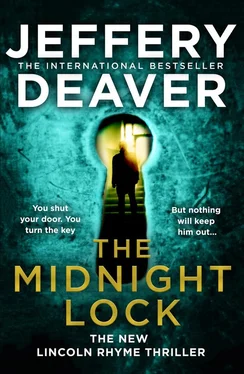
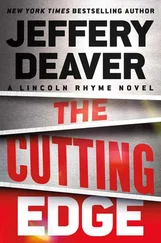




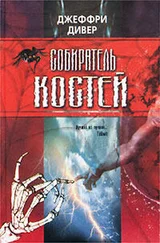
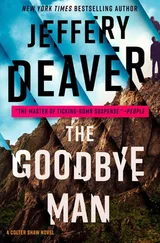
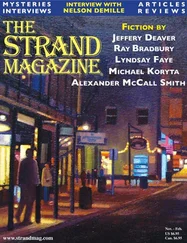
![Джеффри Дивер - Where the Evidence Lies [A Lincoln Rhyme Short Story]](/books/403782/dzheffri-diver-where-the-evidence-lies-a-lincoln-r-thumb.webp)


